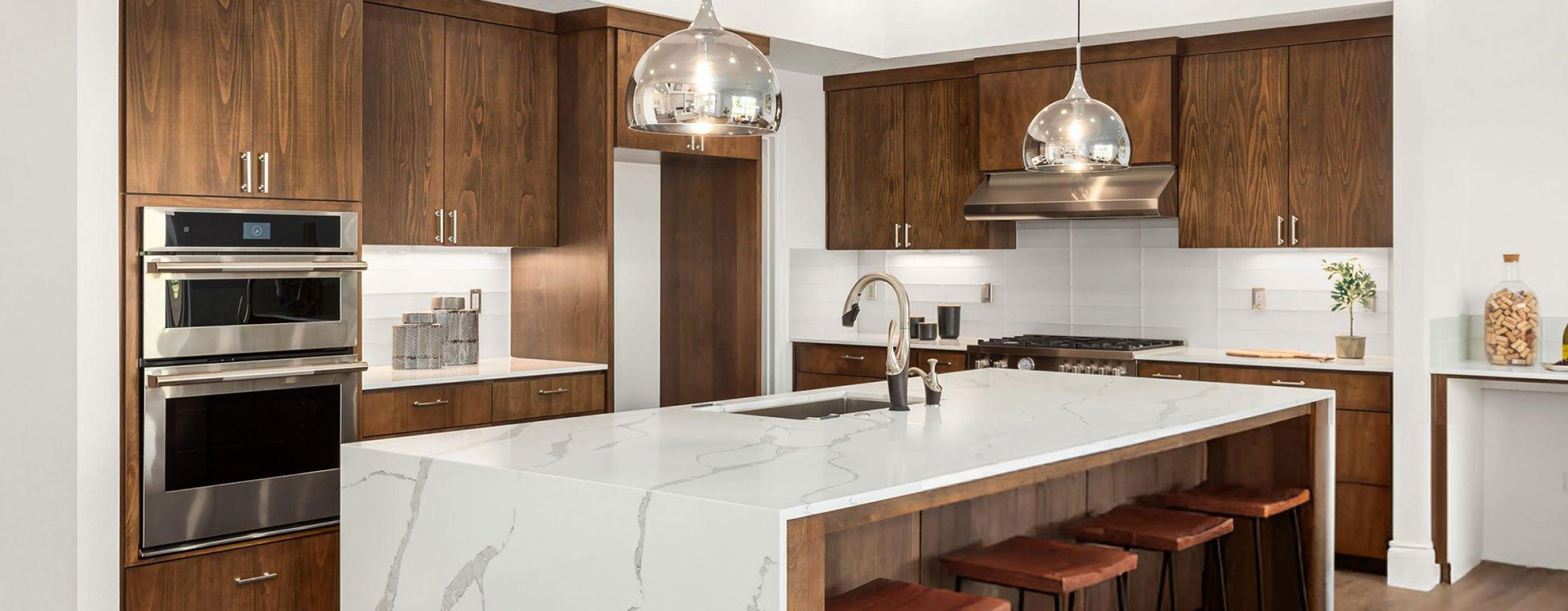
Choosing the Best Material for Your Kitchen Countertops
The kitchen is the heart of every home, and the countertops are its soul. They handle your chopping, cooking, plating, and even your casual conversations over coffee. That’s why choosing the right kitchen countertop material isn’t just about looks — it’s about functionality, durability, and value. In this guide, we break down the best materials for kitchen countertops and help you decide which one fits your lifestyle and aesthetic.

Quartz: The All-Rounder
Best for: Families, modern kitchens, and busy households.
Pros:
- Extremely durable and non-porous
- Stain-resistant and easy to clean
- Wide range of colors and patterns
- Low maintenance (no sealing required)
- Cons
- Can be expensive
- Not heat-proof (use trivets under hot pots)
- Why Choose Quartz?
If you want a countertop that combines beauty with durability and minimal maintenance, quartz is a top contender. It’s engineered stone, which means you get consistency in color and fewer natural flaws.
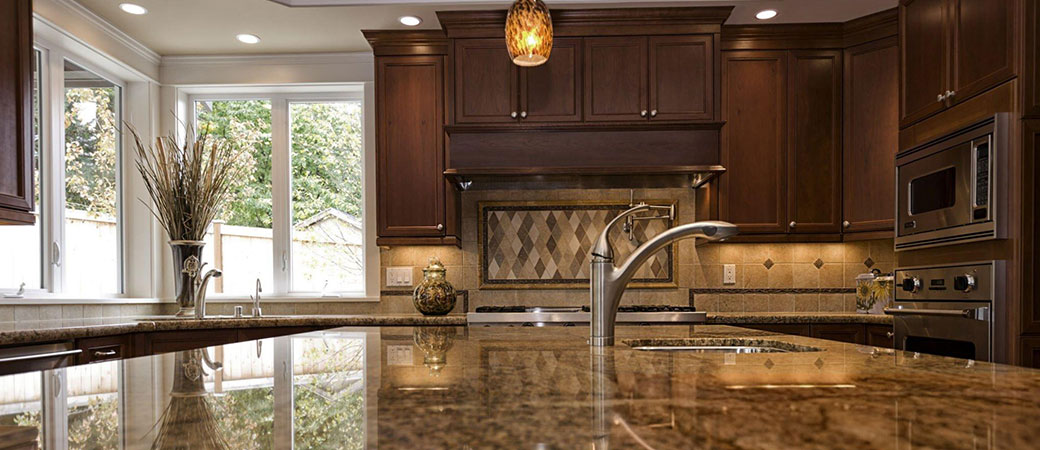
Granite: The Natural Showstopper
Best for: Classic and high-end kitchens, homeowners who love natural stone.
Pros:
- Unique natural patterns
- Very durable and heat resistant
- Increases home value
Cons:
- Requires periodic sealing
- Can chip if heavy items fall on it
Why Choose Granite?
Granite is timeless. Each slab is one-of-a-kind, which adds a natural elegance to your kitchen. It’s ideal for those who cook a lot and love the look of raw, organic materials.
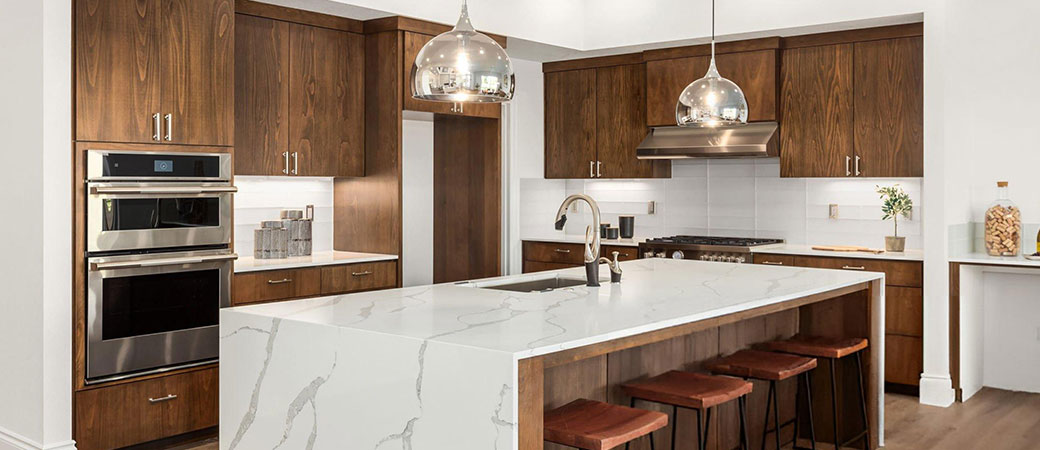
Marble: The Luxurious Classic
Best for: Bakers, luxury kitchens, and classic interiors
Pros:
- Stunning veining and natural beauty
- Cool surface ideal for baking
- Adds a premium feel to the kitchen
Cons:
- Porous and prone to staining
- Scratches and etches easily
- Needs frequent sealing
Why Choose Marble?
Marble is perfect if aesthetics are your top priority and you don’t mind a little extra care. It’s especially favored by bakers for rolling dough, thanks to its cool surface.
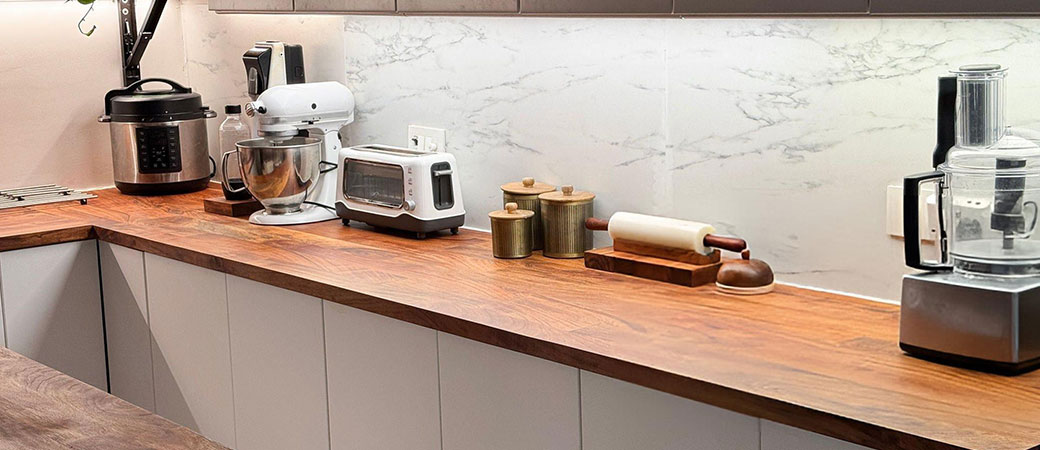
Butcher Block: Warm and Rustic
- Best for: Cozy, farmhouse, or Scandinavian-style kitchens.
Pros:
- Warm, natural wood appearance
- Can be sanded and refinished
- Adds character over time
Cons:
- Can stain and scratch
- Needs regular oiling
- Not heat or water resistant
Why Choose Butcher Block?
It’s great for adding warmth and a handcrafted feel to your kitchen. It’s also environmentally friendly if made from reclaimed or sustainably harvested wood.
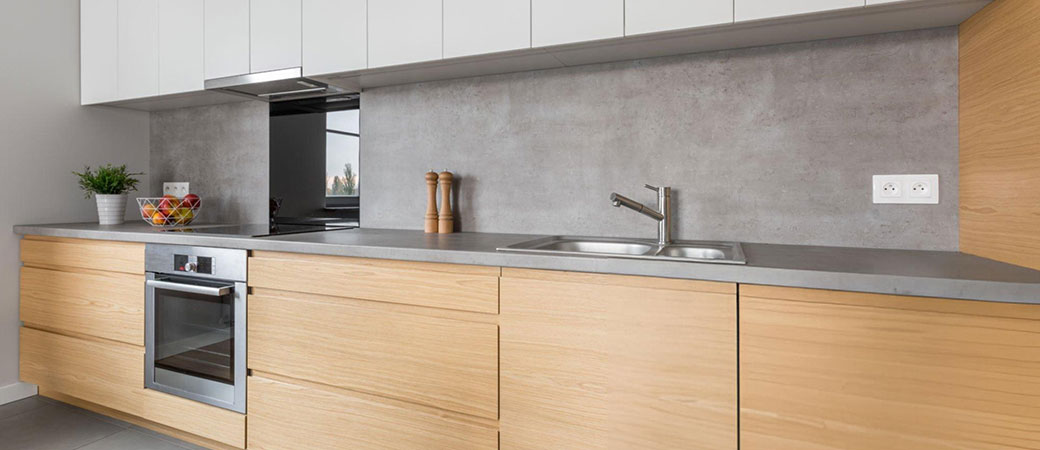
Concrete: Industrial Chic
- Best for: Industrial, modern, and custom-designed kitchens.
Pros:
- Customizable shape, color, and texture
- Very durable
- Heat resistant
Cons:
- Can crack over time
- Needs sealing
- Heavy (requires reinforced cabinetry)
Why Choose Concrete?
Concrete countertops are ideal for those who want a unique, industrial-style kitchen. You can embed items like stones or glass to personalize your surface.
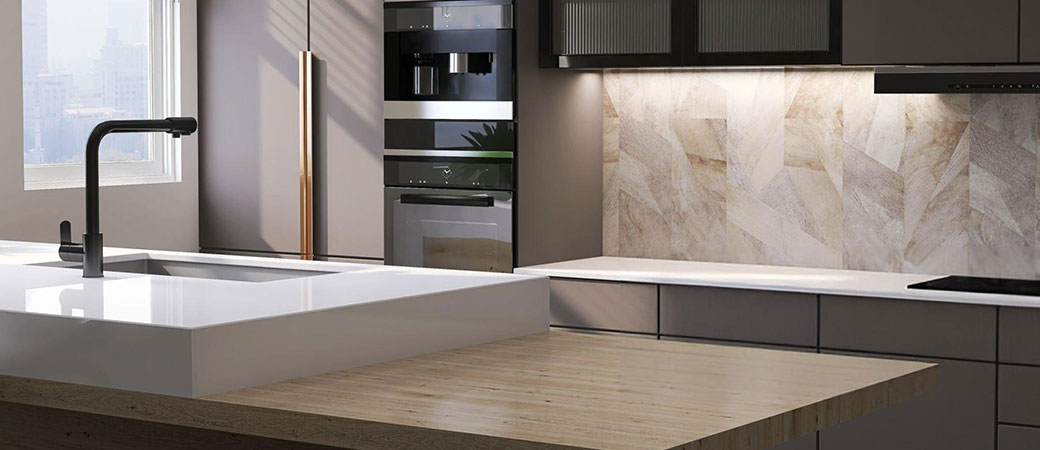
Laminate: Budget-Friendly Versatility
- Best for: Budget renovations, rental properties, DIY kitchens.
Pros:
- Affordable
- Wide range of colors and designs
- Easy to install
Cons:
- Not heat or scratch resistant
- Less durable than stone
Why Choose Laminate?
Laminate is a smart choice if you’re on a tight budget or doing a quick kitchen refresh. Modern laminates can mimic the look of stone, wood, or even metal at a fraction of the cost.
Conclusion
The best kitchen countertop material depends on your budget, lifestyle, and design goals:
- For low-maintenance luxury: Go with Quartz.
- For a timeless, natural feel: Choose Granite or Marble.
- For warmth and texture: Try Butcher Block.
- For an industrial edge: Pick Concrete.

